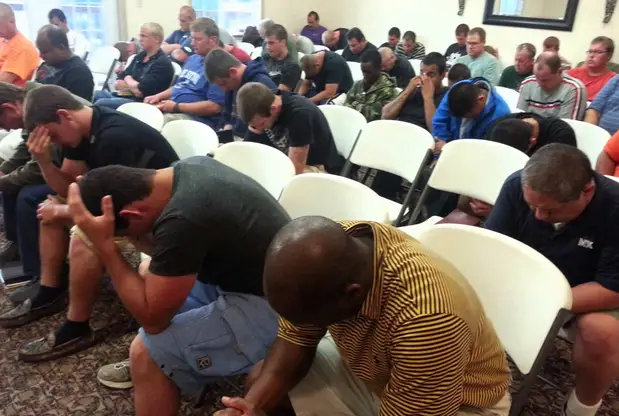
Recently the New York Times ran a story about Nicklaus Ellison, who was in court facing charges of drunk driving after allegedly “breaking his probation …and crashing into four parked cars,” his mother Cheryl Spivey said to the Times.
Facing jail time, the judge instead offered the young man a final option — enrolling in Teen Challenge, a drug-treatment program that encourages participants to become more “Christ-like.”
Ellison, an openly gay 20-year-old, allegedly had issues with complying with the program, and eventually left one afternoon and was tragically found the next morning dead from drugs and alcohol by a stranger he’d met the night before.
What troubled his family beyond his death was a letter they found in his backpack to his sister saying that the program, in addition to curing his drug and alcohol problems had tried cure him of his homosexuality.
Suspicious and distraught, his mother attempted to sue Teen Challenge. But she was told a lawsuit was not possible because upon intake to the program, Ellison had signed an arbitration contract that agreed all matters and disputes pertaining to Teen Challenge must be settled through a Christian arbitration process not bound by state or federal law, but by the Bible where “The Holy Scripture shall be the supreme authority”
Unable to legally take the organization to court, Ellison’s family had no recourse or way of ever knowing what happened to her son while in the program’s care.
Today, there are a growing number of websites run by numerous Christian law firms that instruct churches and non-profits how to utilize religious arbitration to “keep their businesses out of courts,” as one such site advertises:
Every year, thousands of lawsuits are filed in America against churches, schools, other non-profits, and related entities. These lawsuits range from injuries on church property to disagreements over employment, from accidents on youth group trips to cases of sexual abuse. Indeed, the recently publicized sexual abuse cases and multi-million dollar settlements within the Catholic Church should warn church leaders of the risk of such cases within their own churches.
The website then goes on to list the steps these organizations must take in order to avoid court interference and operate under their own moral codes.
“Our secular court system is darn good,” Bryce Thomas, former attorney turned Christian conciliator told the Times. “But it doesn’t get into deep moral issues like sin and reconciliation.”
Unfortunately for many within these religious communities and those being served by non-profits operating under contracts with arbitration agreements, they have no recourse for traditional litigation and it leaves them no access to their basic rights as citizens.

However, what the Times article glosses over is the fact that Ellison, an openly gay 20-year-old male, was sentenced by a secular court to Teen Challenge. It was either that or jail. And it is this piece of Ellison’s story that should be of concern to those of us living in California with the largest prison population in the nation.
Unfortunately, in California there are currently only 161 free treatment centers operating, many of them funded by Christian and other religious charity organizations.
While of course most of the facilities are operating with good intentions from their various moral perspectives, the growing trend of faith-based arbitration creates the potential for many men and women in the judicial system to be handed down, with minimal oversight, from the justice system and into the quickly expanding superseding-wild-west dictates of a religious “tribunal” that potentially perceives religious indoctrination as important as recovery.
This may sound far fetched, but take for example the Salvation Army: for the last few decades as jails crowded in California, many drug offenders were released early and ordered upon parole to enroll in The Salvation Army’s 6- month in-patient rehabilitation program. The organization has operated for decades under a more militarized but nonetheless early model of Christian-based arbitration.
The bottom line is that in a country where the concept of separation of church and state has gradually been reduced to a suggestion, religious arbitration grows in acceptance and holds up in cases reaching as far as the Supreme Court.
Instead of being a nation founded on religious freedom, we are becoming a nation sentencing its citizens to religion.
Featured image via Teen Challenge San Antonio (YouTube)





Leave a Reply